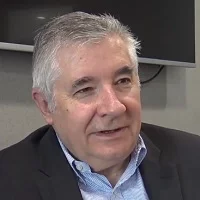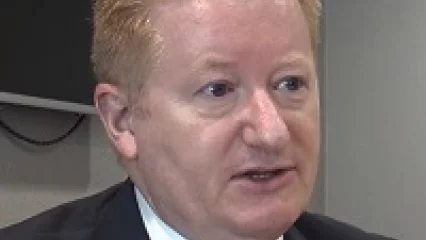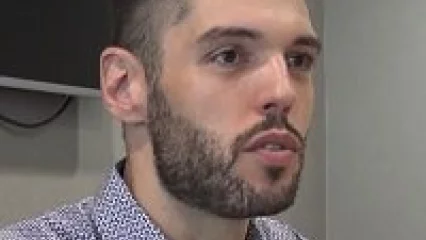Learn the ins and outs of the MBA application experience through this exclusive interview with Jim Saker, Professor of Retail Management at Loughborough University.
[0:25] Q: What makes the Loughborough MBA unique and different?
[0:30] A: When it comes to MBA programs, most of them are very similar because to get MBA accreditation you need to meet certain criteria. In our particular case, we have two fairly distinctive features. We offer a European summer school for advanced management where students can study with MBA students from around the world who come to the UK for two weeks during the summer. We also offer a second-year alternative option – you can sign up for two years where you study for your MBA in your first year and then you do an internship in a UK company. But you also can do that on a student visa.
Check out: Ace Your Warwick MBA Application (Video)
[1:14] Q: What questions should applicants ask business school representatives in order to make a good impression during the interview?
[1:25] A: I think they should always ask informed questions. One of the real problems is when we find somebody before us who doesn’t know anything about the university, the business school, or the program. And they ask fairly naïve questions. The important thing is that you should prepare, be knowledgeable about the university and the program itself and be able to ask meaningful questions..
[1:55] Q: What are some other common mistakes that applicants should avoid during their application?
[2:06] A: Sometimes they underplay their industrial or commercial experience. Some of them say “I spent some years here and there” without really giving you the context of their achievements.. They tend to put on their CV just a statement about their job role. But these things don’t actually tell you what they have achieved.
[2:33] Q: Is there any part of the application package that can compensate for a low test score and vice versa – a high test section score to balance a weakness in the application?
[2:44] A: In our particular case, we don’t have the GMAT test. So therefore, what we are looking for is primarily the academic qualification, and also the experience that the individual has had. So we don’t trade off one against the other. The GMAT has actually no role whatsoever – we don’t accept GMAT as an indicator of the quality of an MBA student.
[3:23] Q: Is there a particular reason for that?
[3:28] A: We think that achieving success in the GMAT simply indicates that you’re doing well on the GMAT. It doesn’t reveal very much about your quality. Parts of the test are very difficult for somebody for whom English is a second language because it is looking at the nuances in the English language. So from our point of view, it is much better to simply have an English language qualification as opposed to the GMAT.
[4:01] Q: Do you offer financial support to applicants and what is the most important part of the application package for getting a scholarship?
[4:11] A: Our scholarships do not hinge on complicated criteria. We bestow them based on academic qualification – if somebody has got a good degree from a recognized university from their own country and experience. So we give out scholarships depending on students’ academic position but also their length of experience. We’re looking for a good degree combined with something like five years’ work experience. That combination will really boost your chances of a scholarship.
[4:43] Q: How should candidates ensure that the recommendation letters will serve their purpose in front of the MBA admissions committee?
[4:50] A: The major element is to get somebody of really recognizable quality to write them. Try to avoid simply a line manager; try to get somebody who has a status in your organization but also knows you. That is a really powerful combination. It shows that you have achieved something that has been recognized by senior management in the organization. You don’t just want a line manager who says “He or she is okay.” You really want someone with a little bit of substance who is fairly high up in your organization if possible.
[5:35] Q: What do you look for in a CV/resume and how is it different from a job application?
[5:41] A: We believe that an MBA program has academic rigor. So therefore, we are looking for somebody with academic competence and possibly good skills in numeracy, obviously an ability to write, and good literacy. But we are also looking for the ability to demonstrate that you have that experience which is relevant to the study you are about to undertake. The combination is powerful. If somebody overindexes on both of those, that’s a really powerful application. Because what they’re saying is “I’ve got a good academic background but also relevant experience that I can contribute to a class.” In an MBA program real learning comes from interaction with other people, not just from the academic faculty. You learn so much more, especially academically and culturally, about how business works.
[6:41] Q: Is there anything you would like to add?
[6:43] A: One of the interesting things about Loughborough University is the largest single-site campus in Europe – it’s a bit like an American campus in that respect. It’s very much a community. We also don’t have an essay approach where we tell you to write an essay and ask you how committed you are. When we receive the application, we have an admissions officer who will contact you directly and we will talk to you and get some idea of what you are looking for. We will make sure that you suit us and we suit you. There is that kind of empathy. We only recruit up to 50 people and that is deliberate because we want everybody to know everybody on the program but also the students to know the faculty very well. That interaction brings a family feel which is one of the big strengths of Loughborough.



